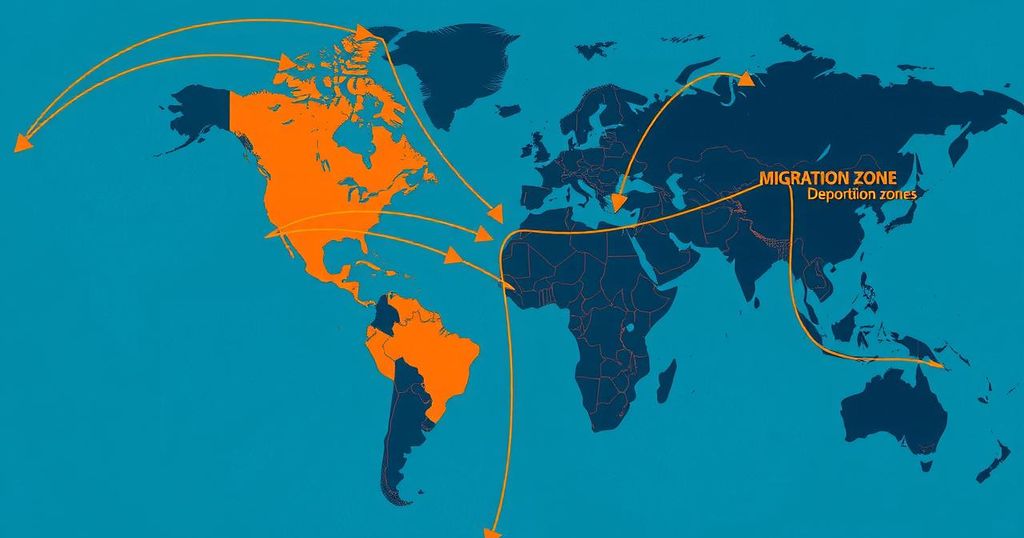Venezuelan President Nicolás Maduro denounces the US deportation of over 200 migrants to El Salvador as a “kidnapping,” asserting that they are not criminals and lacked due process. He announced plans for their repatriation supported by citizen signatures. The US claims some are linked to gangs, but evidence has not been provided, fueling protests in Venezuela against these actions. Maduro reaffirmed a commitment to the dignity and repatriation of Venezuelan migrants detained in the US.
Venezuelan leader Nicolás Maduro criticized the United States for deporting over 200 migrants, primarily Venezuelans, to a notorious prison in El Salvador, calling the act a “kidnapping.” He asserted that these individuals are not criminals and emphasized that they were denied legal representation and due process before their deportation. Furthermore, he urged El Salvador’s President Nayib Bukele not to support what he termed this kidnapping, highlighting that these individuals had committed no crimes in the United States.
Maduro announced that his administration will formally request the repatriation of the deported Venezuelans, supported by an official document bearing signatures from millions of Venezuelan citizens. The tension between the US and Venezuela has escalated following President Trump’s use of an 18th-century law to facilitate the deportations, despite a court ruling against it. Trump characterized the deported individuals as members of a criminal gang, suggesting that the US is facing an influx of migrants requiring stringent measures.
The deported Venezuelans and 23 Salvadoran nationals have been sent to the Counter-Terrorism Confinement Center in El Salvador, known for its harsh treatment of inmates, prompting human rights organizations to decry the conditions as inhumane. Venezuelan citizens took to the streets to protest the deportations, with relatives reporting that some of their loved ones were wrongly identified as criminals. Alongside the protests, Maduro expressed solidarity with the families, celebrating their mobilization to demand justice for the deported citizens.
The US administration has not provided evidence linking the deported Venezuelans to the Tren de Aragua gang, which is involved in serious criminal activities. Recent statements from ICE indicated they reviewed the profiles of the deportees, maintaining that they are valid targets based on their criminal affiliations. However, some previously deported individuals have denied any association with gangs, illustrating the complexities surrounding these deportations.
In response to the ongoing situation, Maduro announced a policy to increase repatriation flights for Venezuelan migrants detained in the US. He affirmed the government’s commitment to ensuring that all detained migrants will be treated with respect and dignity upon their return, emphasizing the importance of family reunification and support for those affected by the deportations.
In summary, Nicolás Maduro condemned the US deportation of Venezuelan migrants to El Salvador, labeling it as a kidnapping and affirming their innocence. He plans to formally request their return with widespread citizen support. The deportation raises significant human rights concerns, with strong protests erupting in Venezuela. The lack of evidence provided by US authorities that the deportees are linked to criminal gangs highlights ongoing tensions and complexities in US-Venezuela relations. Maduro’s commitment to repatriation underscores his government’s dedication to supporting its detained citizens.
Original Source: www.cnn.com




